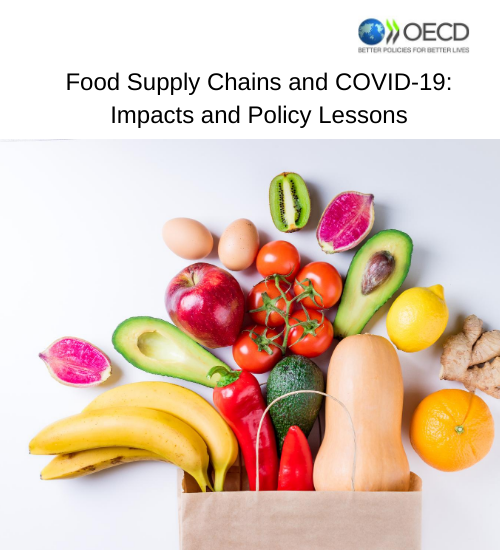
A recent document published by the OECD aims to provide a policy response to COVID-19 impact on the food supply chains.
During the COVID-19 pandemic, food supply disruptions in developing countries, have been varied and often severe. The current health crisis has placed unprecedented stresses on food supply chains, with bottlenecks in farm labour, processing, transport and logistics, as well as momentous shifts in demand. Most of these disruptions have been a result of policies adopted to contain the spread of the virus.
Although food supply chains have demonstrated a remarkable resilience in the face of these challenges, some bottlenecks remain and require attention of policy-makers.
The biggest risk for food security is not with food availability but with consumers’ access to food: safety nets are essential to avoid an increase in hunger and food insecurity.
While the impacts of the pandemic on food chains are still unfolding, several lessons have emerged so as to ensure open and predictable markets, diversified sources of supply and meet the needs of vulnerable groups.
This document is part of a new series of key policy responses from the OECD, providing guidance on the short-term measures needed in affected sectors with a specific focus on the vulnerable sectors of society and the economy.